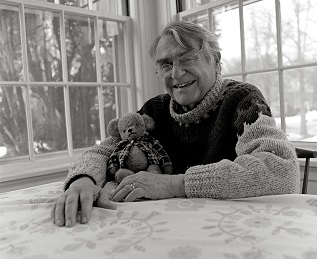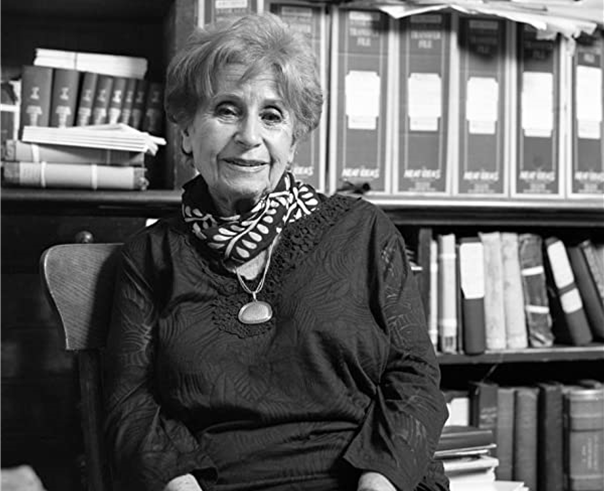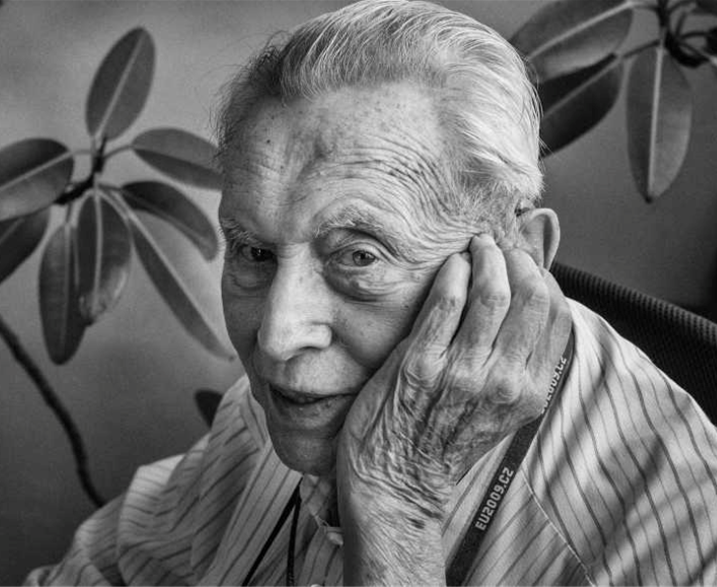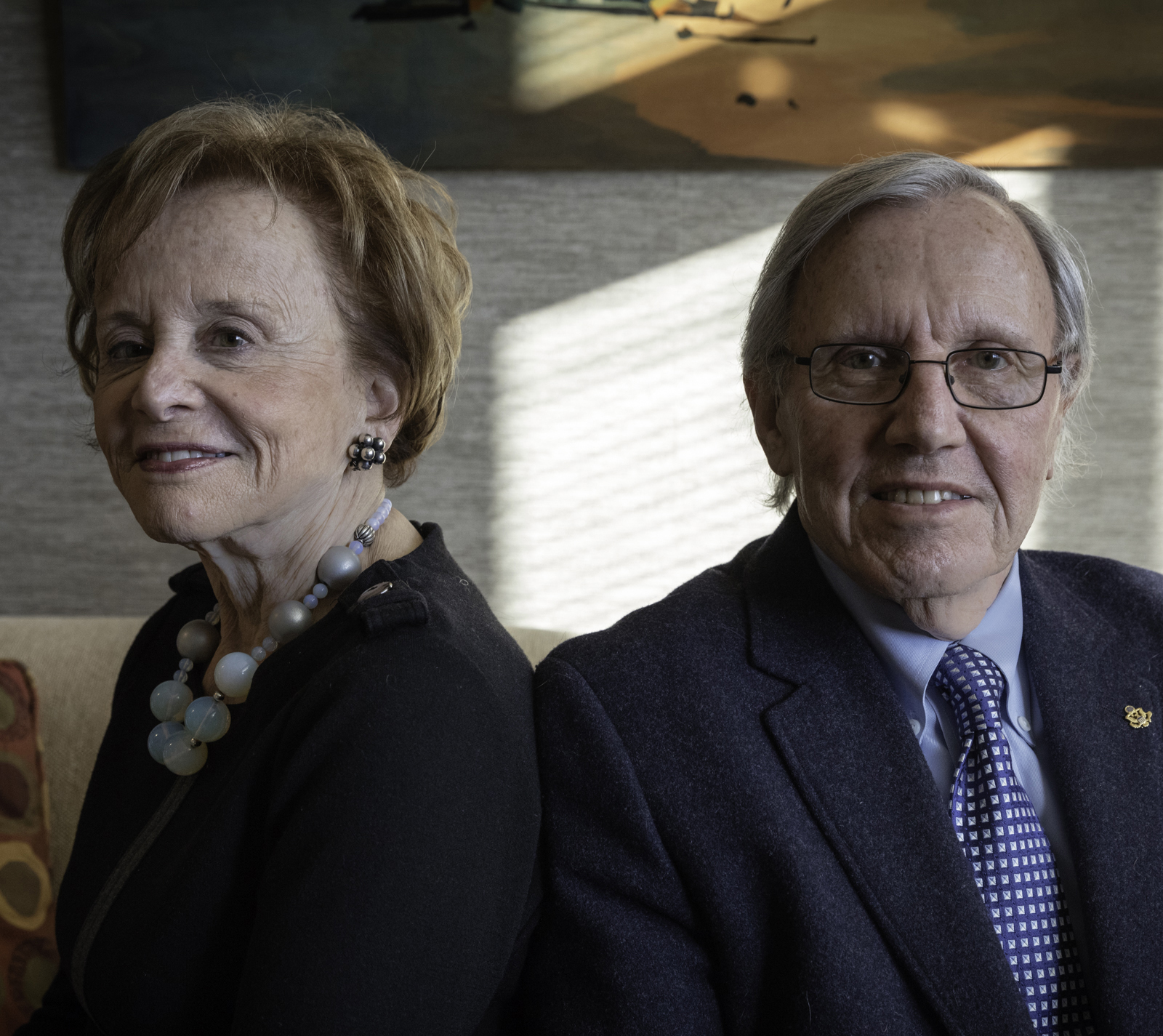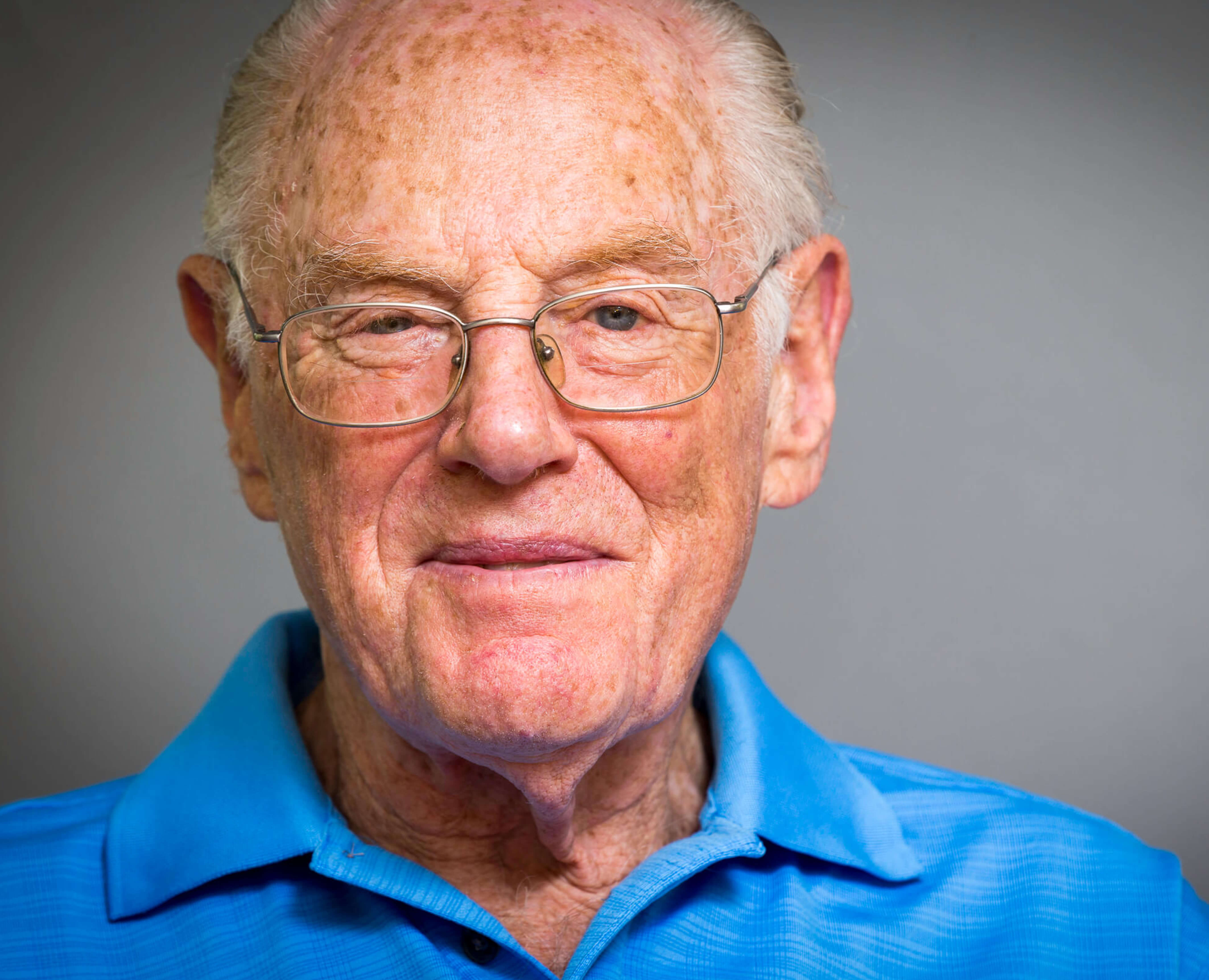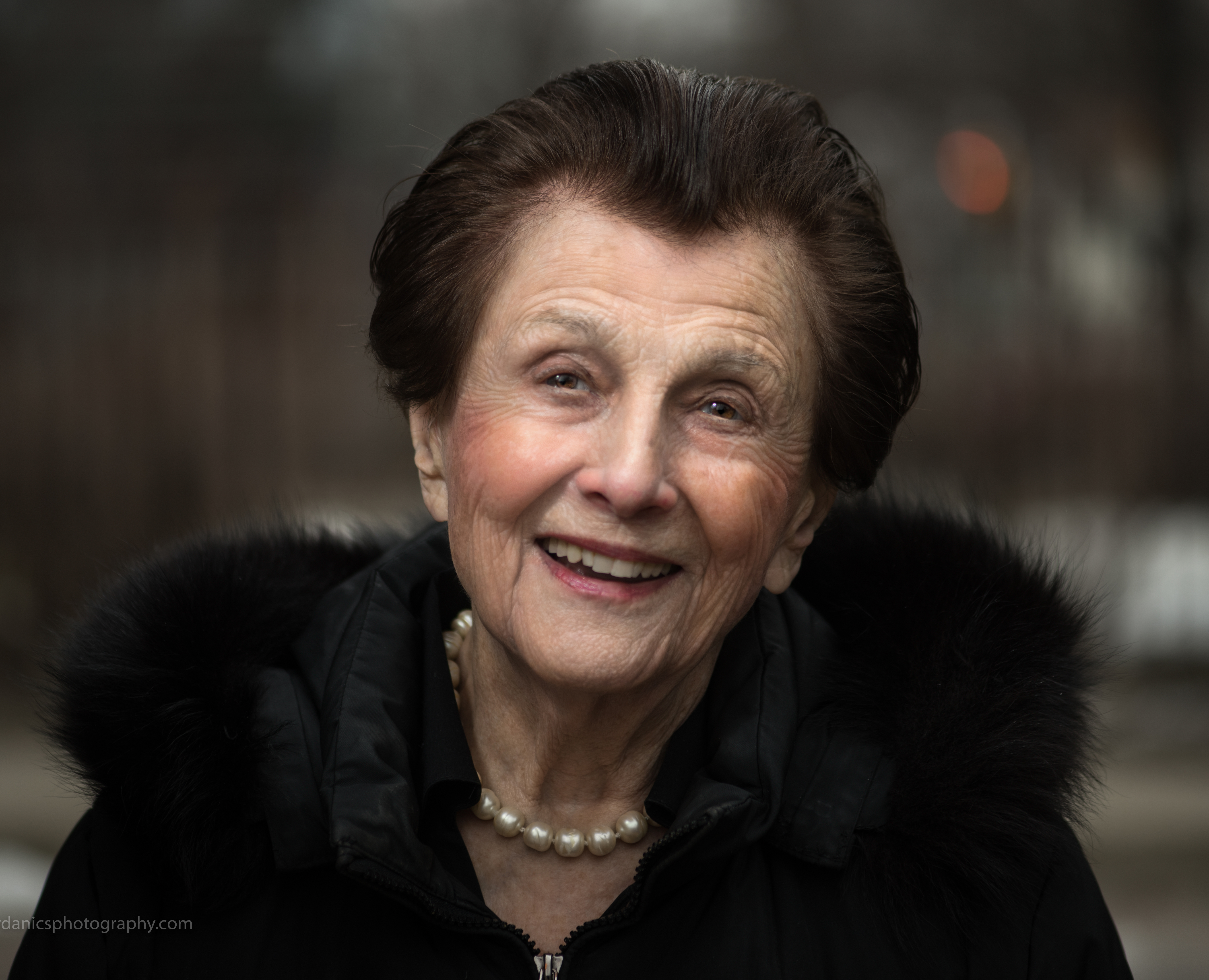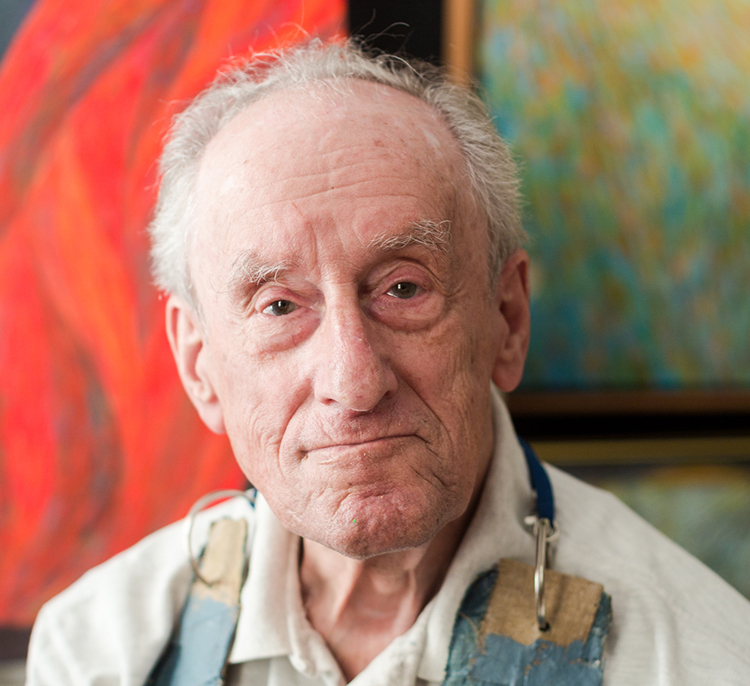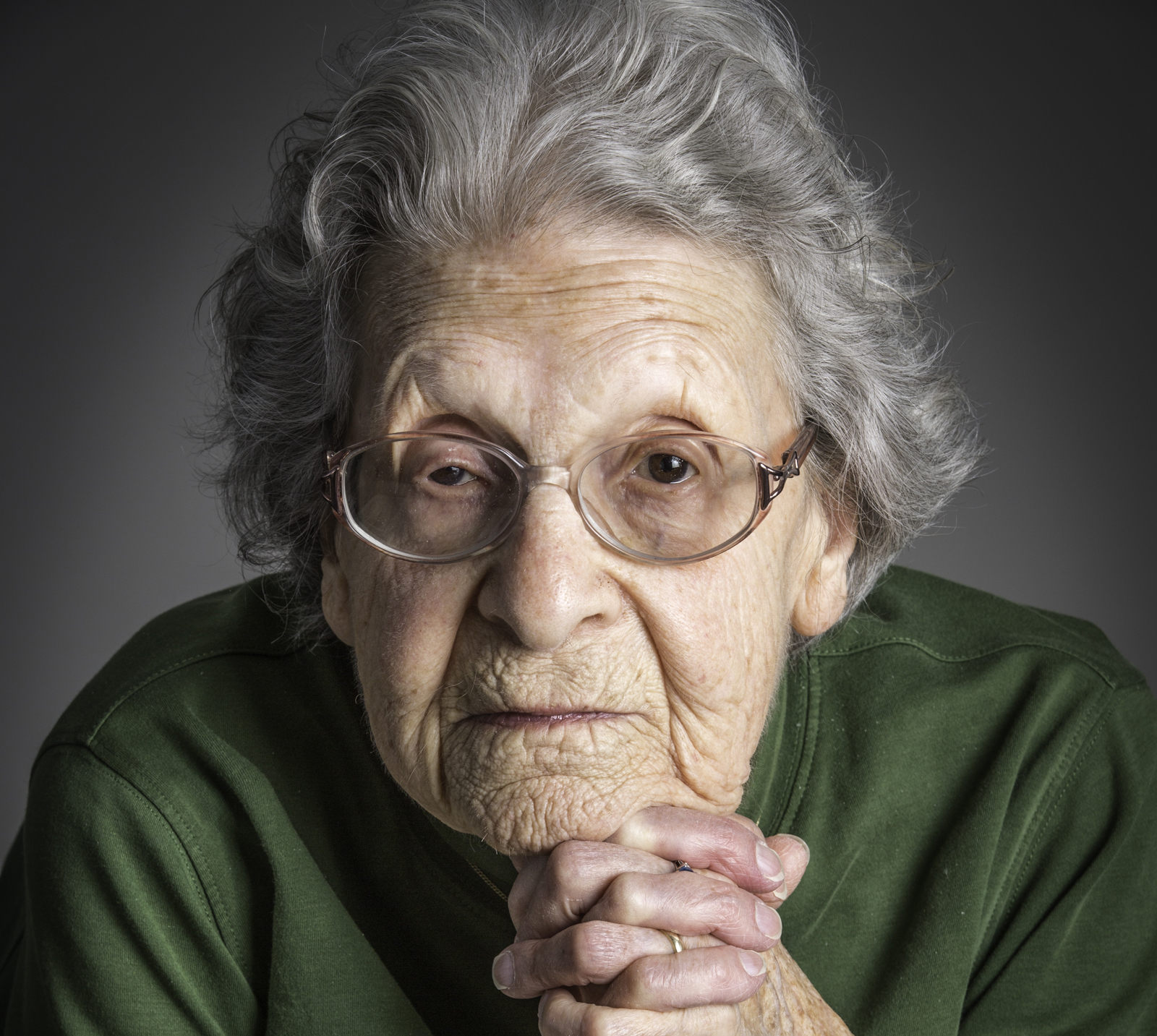Survivor Stories
Click on each person for an in-depth interview.
"These performances allowed the performers and the audiences to immerse themselves into the world of art and happiness, forget the reality of Ghetto life and deportations, and gather strength to better cope with the loss of freedom."
“People ask me, quite often, what did you gain from this whole experience? And I always say, two major things. One is don't ever get married to your possessions...And the other thing is, don't ever accept no for an answer."
“That piece of metal, for me, was the strength of life, of hope, and love. That is all you need for survival."
Felix Kolmer passed away on August 5 at the age of 100. Born in Prague on May 3, 1922, his father died when he was nine years old. In 1941, Felix was on the first transport from Prague to Terezín. A month later, his mother arrived. She died there in 1942.
"Now I realize we’re getting older and survivors are dying out, so it’s important to give testimony. But, how do you describe an experience like that, when it was just a pure miracle that you survived?"
“I didn’t care whether I’d be killed or not, at this point, but I’d be willing to do anything for a slice of bread.”
“He seemed special from the very moment I saw him. Imagine yourself in some kind of jungle and then suddenly you see someone from Fifth Avenue. He wasn’t tall but I thought he was handsome; and he also had a lot of joie de vivre. He was a man of enormous courage and he was brave to a fault. It was a love story in the shadow of death.”
"I remember like today when the convoy came, all the cars were white with red crosses, and there were trucks, ambulances and so forth. We were a group of boys, and some of them tossed out some chocolates and candies to us. It was very emotional. That was a sign that the outside world knew about us."
"I’m aware of it every second of my life: inside of me there is a crazed double bass playing an unpredictable tune. Over the years I have learned to play a fiddle above it so that there should be some harmony to my life."
"What The Bartered Bride meant to the inhabitants of Terezín and to us who sang in it, is something totally, totally unforgettable. I sang in it 28 times. There is not a sound of it that I cannot go on singing when I hear it on the radio. Only, I don’t hear it. I live it again, and I’m again 20 years old, and again surrounded by the faces of the people in the chorus."



